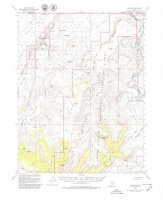I think this requires the same kind of answer you give your grandparents when they ask you which computer they should buy: that depends...what do you want to do with Google Maps?
Keep in mind that a coordinate format can be seamlessly converted in the GPS or the phone. So whichever format you prefer to use is mostly irrelevant to the GPS and the phone apps. For me, the format is really only important to me: which format is most useful and which is most user friendly.
Google is not a big fan of UTM, though. So, the integration of UTM for Google depends on how you want to use Google.
If you're wanting to use Google maps to import a GPX file (can you do that?), then the coordinate format shouldn't make any difference. If you're wanting to import a GPX file from Google into your GPS or a phone app, then the coordinate format won't make any difference, either. The GPS does all the heavy lifting behind the scenes for the necessary conversions. I think the decimal degrees format is the standard for GPX files, so regardless of the format you choose, any application that spits out a GPX files will use the decimal degrees format.
But if you're wanting to copy and paste a coordinate into a Google Map to see where it is, then you'll have to
convert the UTM coordinate to a lat/long coordinate...and usually decimal degree is the easier format for that, I think.
So, what are you wanting to do with Google Maps, exactly?
The biggest reason I like UTM is that you don't need a GPS for the information to be useful. The numbers in the format are just the distance in meters from a specific reference point. So, if you are standing at this spot: 12S 573999 4252205. And then you want to walk to this spot: 12S 574999 4252305. Then you know that you need to walk 1000 meters east and 100 meters north. That's it. But if I give you a latitude and longitude coordinate, you can never figure out where it is without all kinds of math or a GPS.
So, to answer your questions: for the phone apps and GPS, the UTM format doesn't make any difference at all. For Google, it depends how you want to use it.

